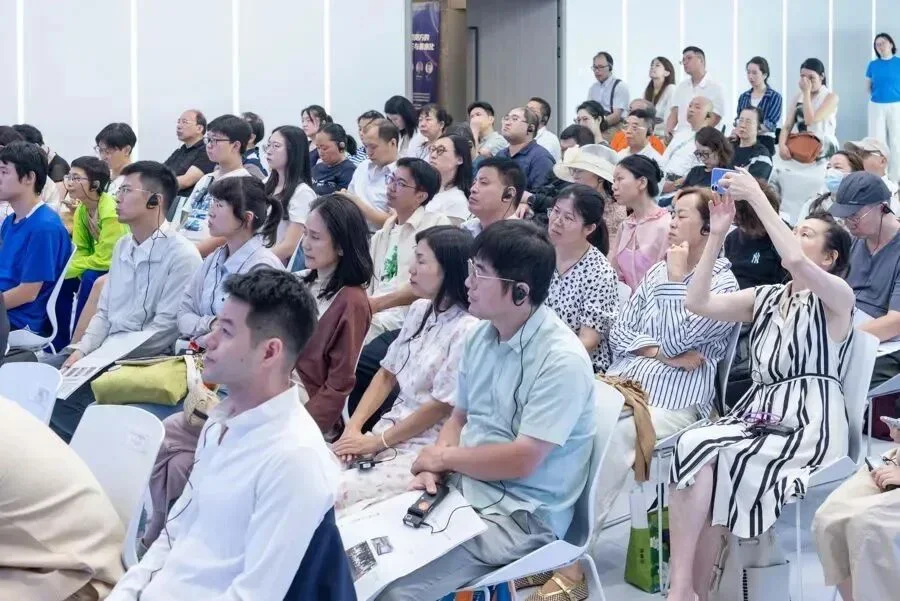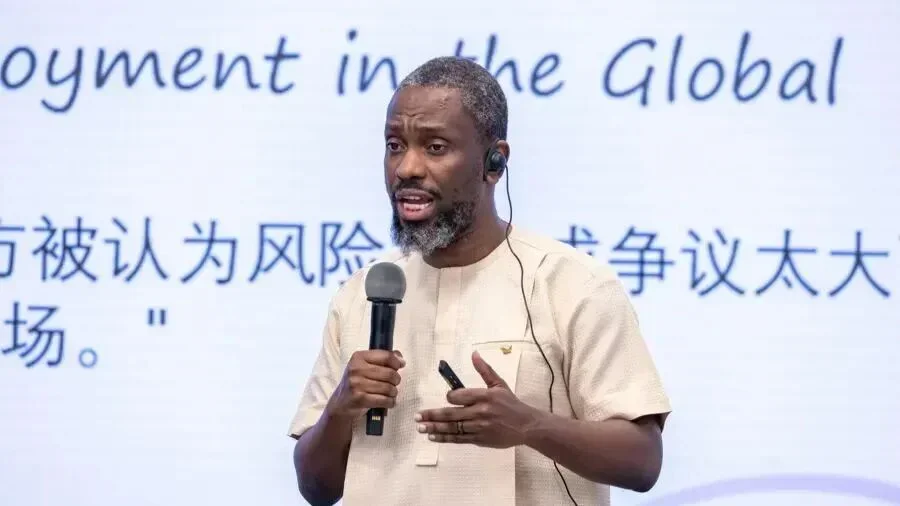
Kambale Musavuli, National Digital Strategy Advisor of Ghana, Keynote Speaker
On August 9, the sixth lecture in the "Global South Ten Lectures" series, titled "AI Autonomy and Inclusivity in the Global South," was successfully held at the Shanghai United Media Group. The event featured speeches by Kambale Musavuli, National Digital Strategy Advisor for Ghana; Sergio Amadeu da Silveira, former director of Brazil's National Institute of Information Technology; and John Pang, Senior Research Fellow at the Asia-Pacific Belt and Road Initiative Association of Malaysia. The lectures were reviewed by Xiong Jie, Secretary-General of the East China Normal University Global South Academic Forum. The live broadcast was watched by 15,000 people on platforms including the Xinmin Evening News app, CCTV Video, the East China Normal University video channel, and the Wenhui Daily video channel. The event was jointly organized by Wenhui Daily and the East China Normal University Global South Academic Forum.
The following is the full text of the speech:
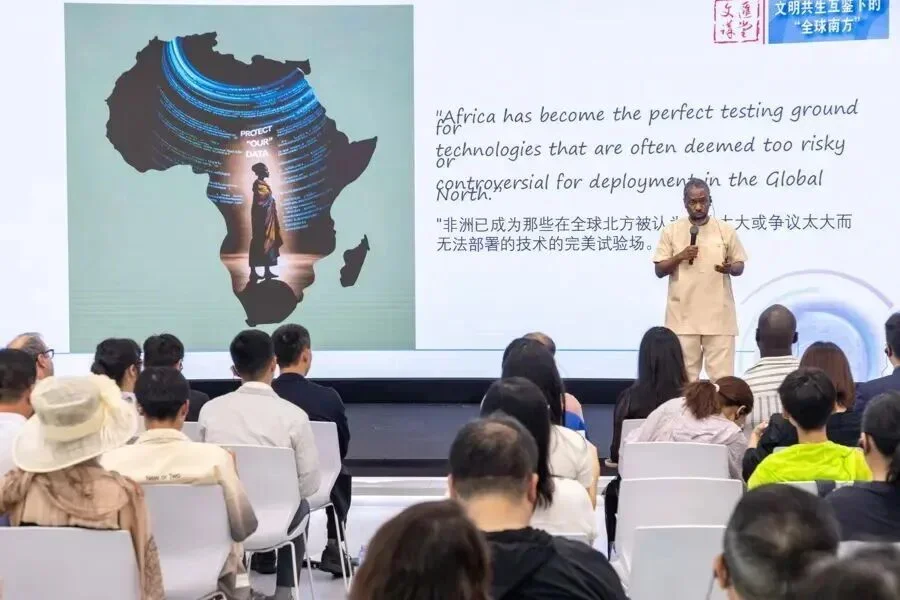
I am from Ghana and serve as the National Digital Strategy Advisor. The African continent has been continuously discussing the AI revolution, which is a core driver and key component of the Fourth Industrial Revolution. We have used various AI models, and through that use, different perspectives have emerged on what AI means for us in Africa. We hope to create our own large models and build our own AI infrastructure, while also participating in global discussions, especially on how to formulate policy frameworks for AI development. This is because such frameworks will not only benefit our countries but also people all over the world.
From Natural Resources to Data Resources
In the 1960s, Patrice Lumumba, a leader of the Democratic Republic of Congo (DRC), believed that Congo's resources should benefit its own people. With today's rapid advancement of AI, how do we interpret Lumumba's words? While the core focus used to be on controlling natural resources, today it is about controlling data. Who controls our data? Who benefits from it? These are the critical questions currently facing the African continent.
We are constantly thinking about this because Africa is at a digital crossroads. The continent's vast young population is generating data at a high speed, and this data is the physical foundation for building AI models. However, we cannot control the data we produce and do not know how to use it to advance technology or have a say in decision-making.
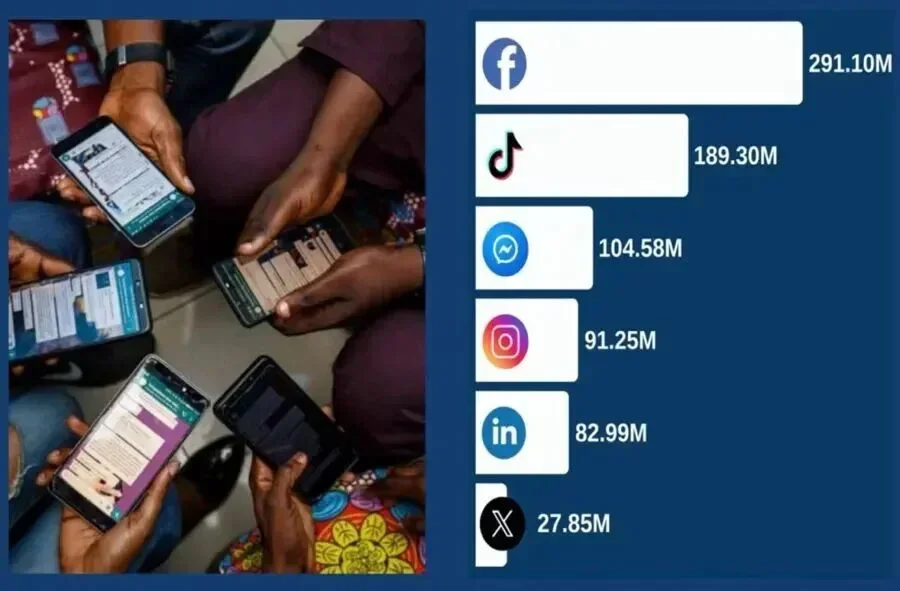
Most of the social media used by young Africans, such as Facebook, are controlled by Western companies.
We are generating a massive amount of data, but have no control over the data industry.
Currently, artificial intelligence has become the central axis of global power. Data, algorithms, and computing power are profoundly influencing economics, politics, and the concept of sovereignty.
During the colonial era, Africa's rich natural resources like rubber and gold were exploited and exported, fueling the industrial revolutions elsewhere, while Africa was very late to enter it.
In the industrial age, the minerals Africa supplied to the world drove the global AI revolution, yet its people remain among the poorest in the world. For example, the DRC supplies 70% of the world's cobalt, which is used in batteries to power data centers, and a large amount of tantalum, a key element in semiconductor manufacturing, but only 5% of the mineral value remains in the country. Now in the digital age, Africa has a population of 1.4 billion people, most of whom are young and use mobile payments and social media platforms, like Facebook, WhatsApp, and Instagram, which are dominated by Western companies. They generate a massive amount of data, but we have no control over the data industry. The logic of these three phases is exactly the same: Africa provides the raw input, which drives innovation and economies elsewhere, while local communities receive minimal returns from their own resources.
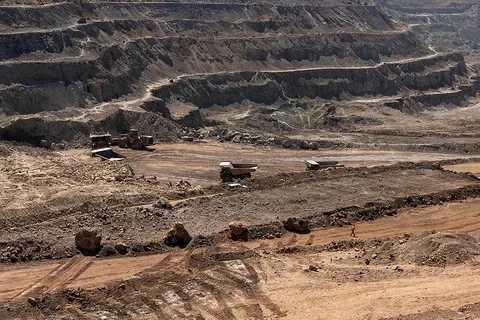
Cobalt is the raw material for new energy batteries. Congo (DRC) has the largest distribution of cobalt mines in the world. Source: Visual China
Today, Africa is the last frontier of AI. Ghana's adoption of AI technology has enhanced its national strength, and Kenya's digital payment practices are nearly synchronized with global digital technology. Africans cannot accept that by 2025, our economies, politics, and digital space will still be controlled by the West. We long to be in control of our own affairs.
The question is not whether Africa will participate in the AI revolution, but whether it will participate as an owner, a governor, and a leader, or merely as a supplier of raw materials and a buyer of finished products.
Western Nations Formulate Data Rules and Simultaneously Control Africa's Economic Lifeline
The Western world, especially Europe, is enthusiastic about formulating global data usage guidelines, such as the European Union's AI Act. Simultaneously, related French and German institutions have also established frameworks for AI use. Africa has become a testing ground for such policy frameworks, but the benefits have flowed more to the creators and have not benefited the African continent itself. In July of this year, Germany announced a domestic ban on DeepSeek for "national security" reasons and attempted to impose this ban on Africa. The German Agency for International Cooperation (GIZ) is manipulating the African AI organization Smart Africa to export German foreign policy to Africa through the framework of AI policy.
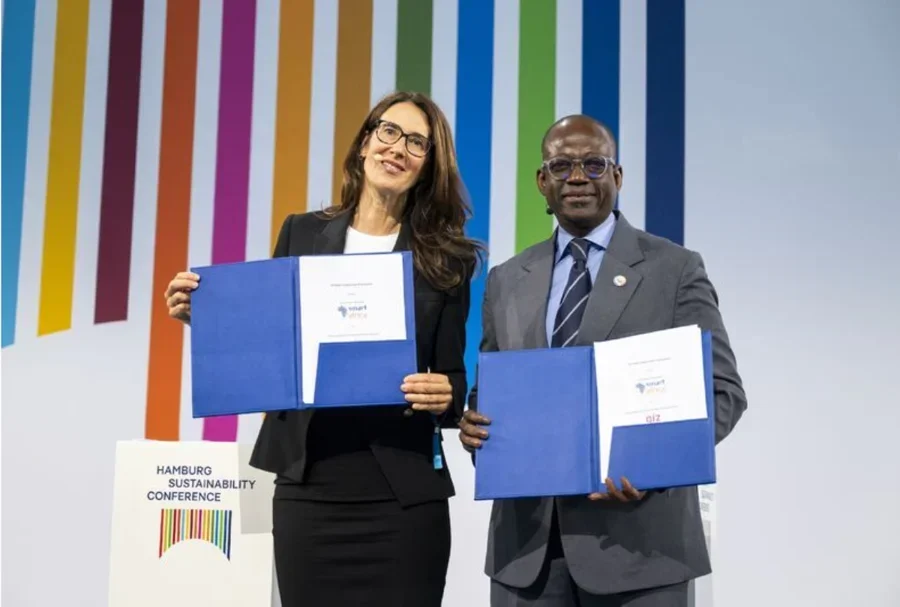
On June 24, GIZ and Smart Africa signed a digital health cooperation framework
The United States and France have military bases in West Africa, some of which house data centers with the participation of major tech companies like Amazon in their construction. Along with the military expansion of the US and the West, they also control Africa's economy. For example, the CFA franc is printed by the Bank of France, and its fixed exchange rate with the euro is determined by the French Treasury. We can speculate on the impact the United States has on Africa's financial sector; this is a concentrated manifestation of imperialism.
We are working to urge these powerful forces to withdraw from Africa. At the same time, an organization established in Burkina Faso, a landlocked country in West Africa, is taking measures to minimize the financial and monetary influence of these foreign powers on Africa.
Most Digital Infrastructure Is Built and Controlled by the West
In Pan-African discussions, we have all realized the need for better control over AI infrastructure to build our own large AI models. The current challenge is that most of Africa's digital infrastructure is foreign-controlled. Specifically, 90% of subsea cables are built by large US and European companies. Companies like Starlink and OneWeb have deployed satellite networks without local governance, and foreign telecom operators control major mobile network access points. This digital infrastructure is the backbone of Africa's AI future, but it is largely subject to structural dependence.
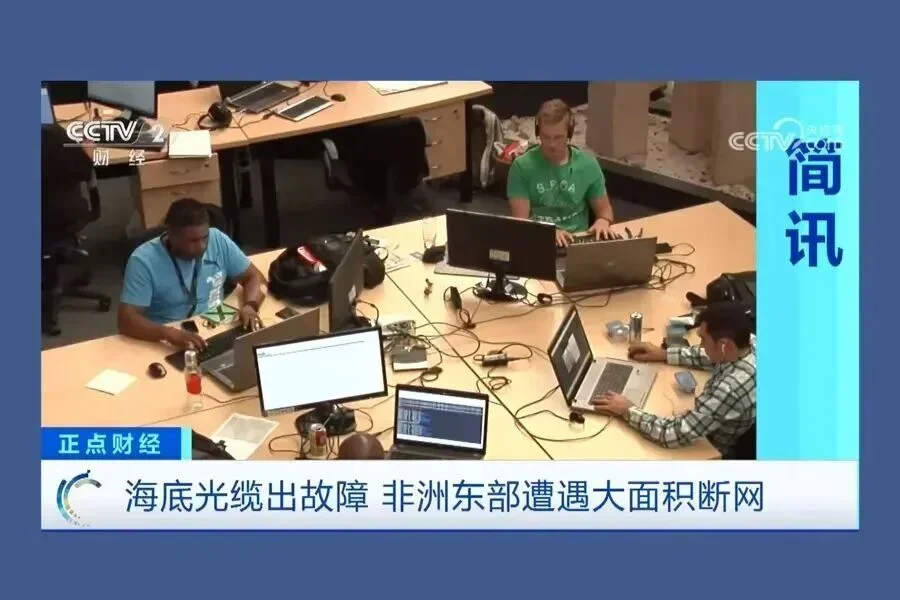
In May 2024, many countries in East Africa experienced widespread Internet outages due to damage to submarine optical cables. Source: CCTV.com
In March 2024, Ghana, Côte d'Ivoire, Benin, and other African countries experienced severe internet outages, disrupting services for millions of users, with many remaining offline for weeks. The cause was damage to the subsea cables off the west coast of Africa. These cable networks are controlled by large US corporations, which, despite having responsibility agreements with African countries, failed to carry out timely repairs. Such negligent behavior has occurred repeatedly in many African countries.
This large-scale outage was undoubtedly a wake-up call. It also revealed that many data centers in Africa can face unstable network connections due to cable issues. For instance, while Elon Musk's digital infrastructure market share continues to grow, there have also been some instabilities in the internet connections with the African continent. What is even more unsettling is that the data owned by these US companies is closely related to African cars and vehicles, but the control over this collected data does not lie with Africa.
Building Our Own "Digital Sovereignty"
How can Africa control its own digital resources? This is about how Africa can defend its digital sovereignty. In my view, independent jurisdiction and infrastructure control must be held simultaneously. The facts also make us realize that sovereignty is built, not granted.
To achieve digital sovereignty, Africa urgently needs to create a local framework.
To implement digital sovereignty, Africa urgently needs to create a local AI framework. My visit to China has been very surprising. I have seen many innovators and institutions, such as the International Artificial Intelligence Center in Shanghai's West Bund and the China-BRICS Artificial Intelligence Development and Cooperation Center. From these, I have seen China's progress in AI, particularly in policy frameworks.
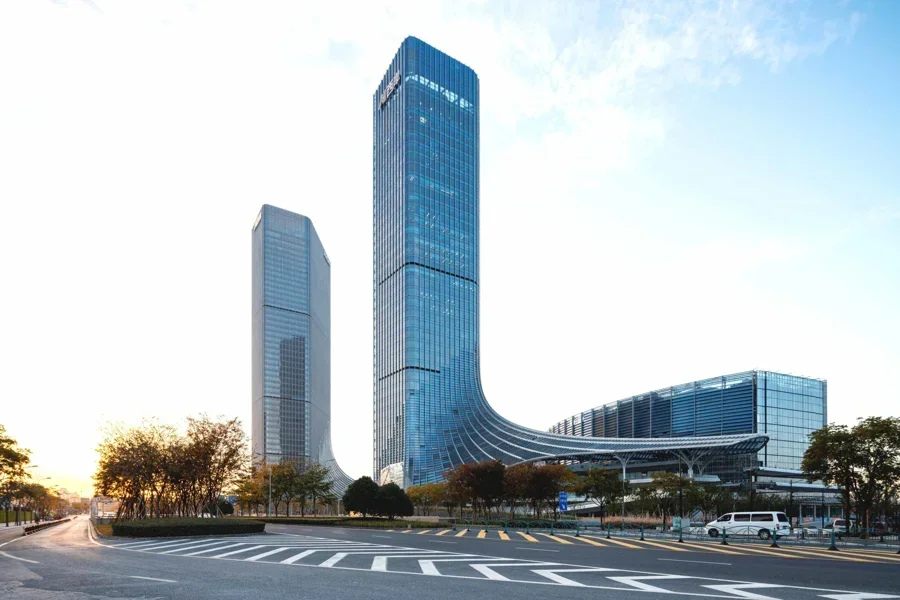
The International Artificial Intelligence Center on Shanghai's West Bund has attracted companies such as Alibaba and Huawei to settle in.
The EU's AI Act is severely disconnected from Africa's reality. Africa's situation is very dire. First, we lack national data policies. Second, we have not created our own large language models, but have mostly adopted "cloud sovereignty" solutions provided by large tech companies. Third, we use and consume data, but cannot control the related model architecture frameworks, effectively confusing the location of data with actual sovereignty. Fourth, foreign hardware and software systems dominate, and we have insufficient control over our infrastructure.
If we try to create a policy framework and use Europe's framework to achieve our goals, an extreme scenario is that DeepSeek and large language models from other countries could become unavailable in Africa overnight. Now, some countries are more focused on how to prevent or stop the African continent from having its own AI tools.
Encouragingly, at the 2025 World Artificial Intelligence Conference in Shanghai in late July, China put forward its proposal for global AI governance, which differs from the West's unilateral governance solutions and helps promote the direct participation of Global South countries.
The Possibility of Sovereignty: Ghana's AI Strategy and Its Alternatives
Ghana's AI Strategy (2023-2033) was proposed in 2022 and is currently entering the legislative process. The strategy's main plans include digital education and AI literacy training, establishing innovation centers and startup support, implementing AI applications in sectors like healthcare, agriculture, and governance, and significantly enhancing research capabilities and talent development. Although the strategy paints an ambitious picture, it relies heavily on external forces for its implementation, which may weaken its true sovereignty and self-determination in AI development. For example, it depends on technical assistance from the German Agency for International Cooperation (GIZ), funding from the World Bank's digital program, partnerships with private sectors like Mastercard and Google, and educational curricula developed by foreign universities.
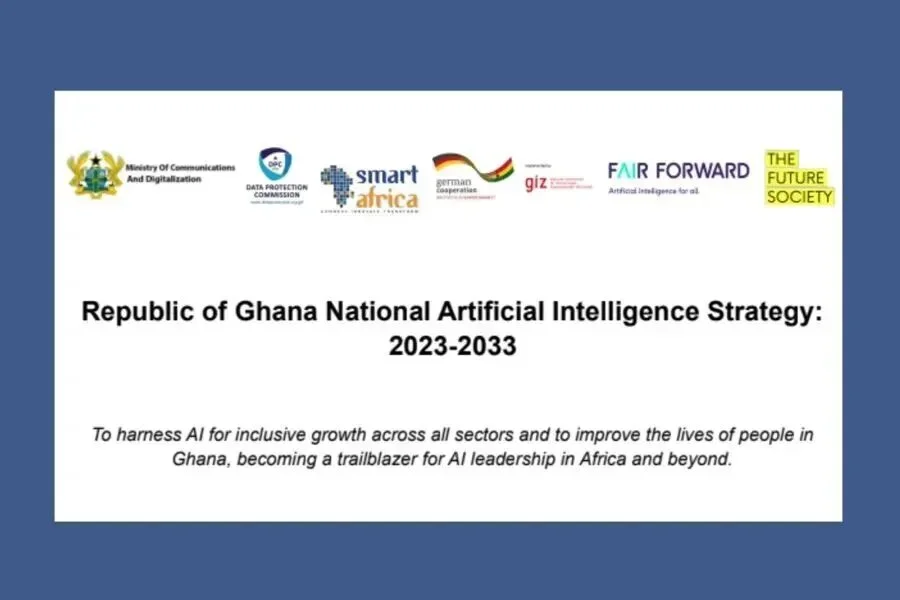
In 2022, the Ghanaian government proposed a ten-year artificial intelligence development strategy
So, how can we achieve data self-control and benefit local residents? A community-led initiative, the Ghana Natural Language Processing (NLP) program, shows an alternative path for AI development. In this program, data and models are developed by and for the Ghanaian community. The initiative focuses on local languages (Twi, Ewe, Ga, Dagbani), uses community-driven data collection and validation, provides open-source models for local developers, and applies locally relevant use cases in education and healthcare. This way, the technology is freely available for local developers and organizations to use, and AI systems respect and strengthen local cultural values. This community-led approach contrasts sharply with proprietary AI systems, which extract African data while giving local communities little to no control or transparency. This alternative solution can clearly better serve Africa and align with its real interests.
Leveraging the Power of the BRICS System and African Youth as the Main Force
During my visit to Shanghai, we had extensive communication with various local digital policymakers. I learned a lot from China, including how policymakers work, how we should interpret algorithms, and how to understand the frameworks currently being promoted. Learning from China's advanced experience is very important for Africa and other countries in the Global South. In January 2025, China released DeepSeek, which showed us the possibility of democratized AI. The release of DeepSeek also prompted Western companies like ChatGPT and OpenAI to update their models. Providing such resources and the necessary resources to the people is the path we should take next. How can we further build this model?
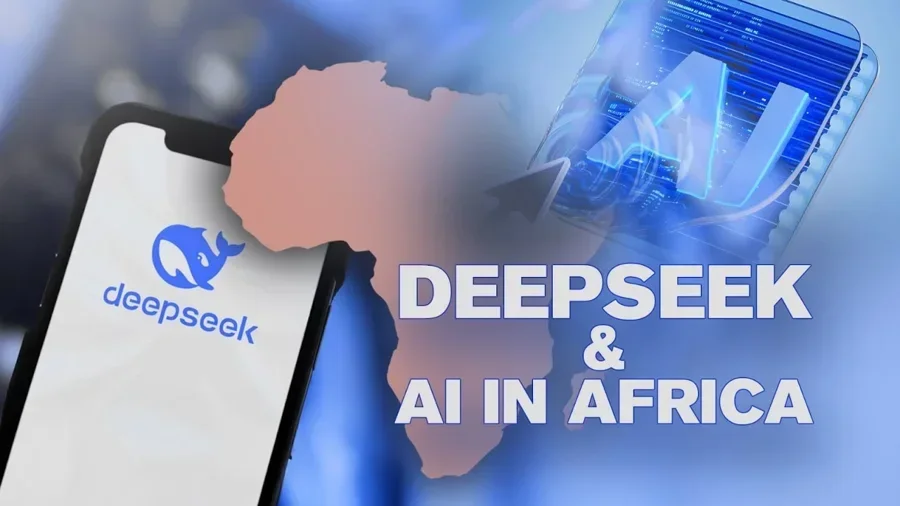
The advent of DeepSeek has brought inspiration and opportunities to Africa. (Image source: CGTN)
The BRICS countries and sovereign infrastructure, including platform systems, data centers, and language models, must not only achieve system synergy and regulatory cooperation but also share scientific research and technology development and reduce their dependence on external technology. To achieve this vision, the first step is to create a mutually beneficial framework for sharing resources, and the second step is to ensure support for African countries. Doing this better is not just for ourselves but for more people to have better control over infrastructure. This infrastructure can help our tools better take root. At the same time, we realize that Africa's own forces, especially the youth, must complete this construction.
Africa has land, resources, and talent; it needs global technology. We even envision creating a brand-new form of China-Africa "Belt and Road" initiative, specifically for the digital field.
AI Shapes a New World and Africa Gains Dignity
The visit to Shanghai was very rewarding. AI technology allowed me to wear ancient Chinese clothing and travel back in time, which made me think about how to use AI to spread African culture, African languages, and African stories to help African communities — something we urgently need. If we have these tools, how can African countries do better? How can we highlight our national characteristics culturally? I also participated in discussions about large language models and offered some important suggestions. First, focus on scientific research, ethical standards, and open-source development. Second, strengthen talent training and technological exchange. Third, open up a path for development that breaks the pattern of Western and American dominance.
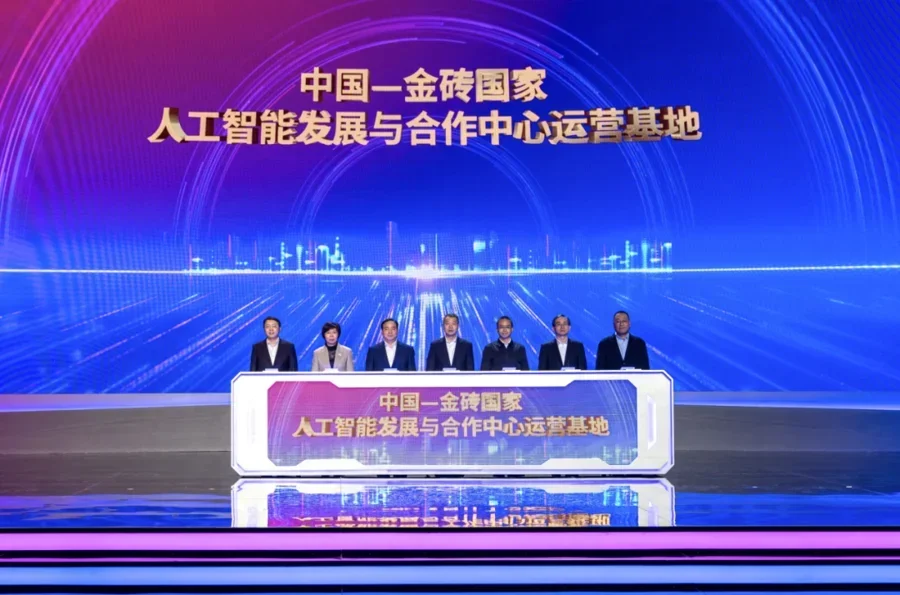
In January 2025, the China-BRICS Artificial Intelligence Development and Cooperation Center Base was opened in Shanghai.
Why is the discussion about AI so important?
The African American poet Langston Hughes once said he was not interested in technology that could not change the circumstances of people, no matter how high-tech it sounded. When discussing digital sovereignty, we must remember that people are the foundation of everything. Just as the Fourth Industrial Revolution aims to bring change, we firmly believe that AI as a tool can change the status quo, especially in the face of the wars, conflicts, resource devastation, and destruction of rivers and land that some countries in the Global South are experiencing. We will also shape the world of tomorrow — the world we want to achieve — a world in which AI will change the fate of ordinary Africans.
I believe the BRICS countries can create space for cognitive autonomy and technological diversity, ensuring we have shared knowledge and joint development projects, and ultimately change the world order together. Strengthening cooperation within the BRICS framework is crucial for our transformation. The BRICS countries have already proposed various alternative solutions for controlling sovereignty. For example, India's digital public infrastructure program, with its open protocols like UPI and Aadhaar, provides an alternative to corporate platform monopolies and has enabled inclusive digital services nationwide. The Brazilian government's mandatory use of open-source software and data sovereignty laws provides a model for achieving technological independence without isolation. South Africa's AI ethics framework proposes an Africa-centric approach to AI governance that prioritizes collective interests and historical compensation over simply pursuing efficiency metrics.
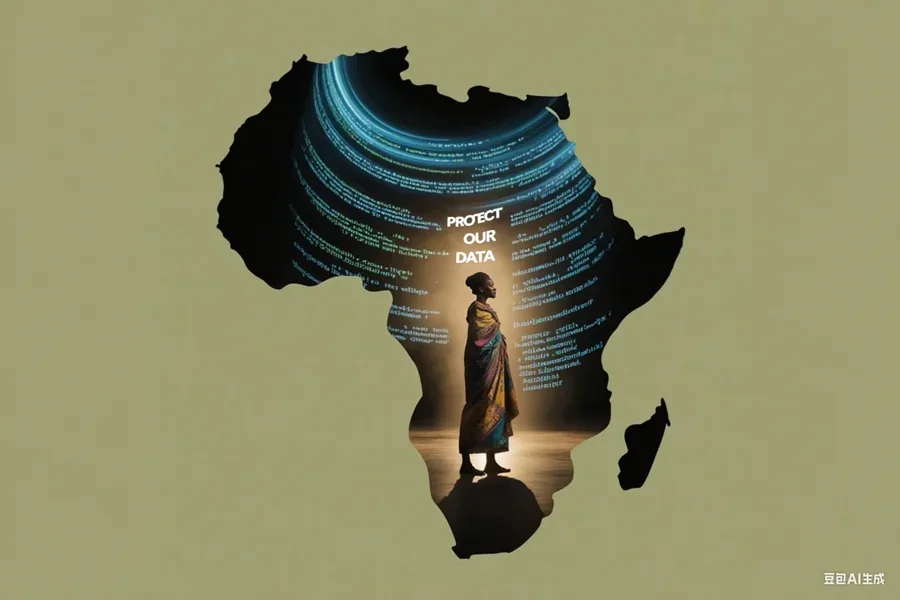
Protecting data sovereignty is key to AI benefiting the African people.
Africa also hopes for new developments in its relationship with China. For example, we want to see skill transfer that focuses on core technical capabilities, the establishment of joint research institutions with equal intellectual property rights, joint governance of platforms and infrastructure, training programs that cultivate creators rather than just users, and the joint development of technology.
We must build and share together so that everyone in the world, especially the people of Africa, can live their lives in peace and dignity.
